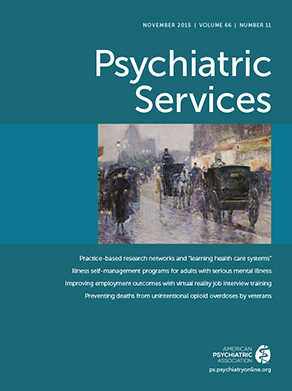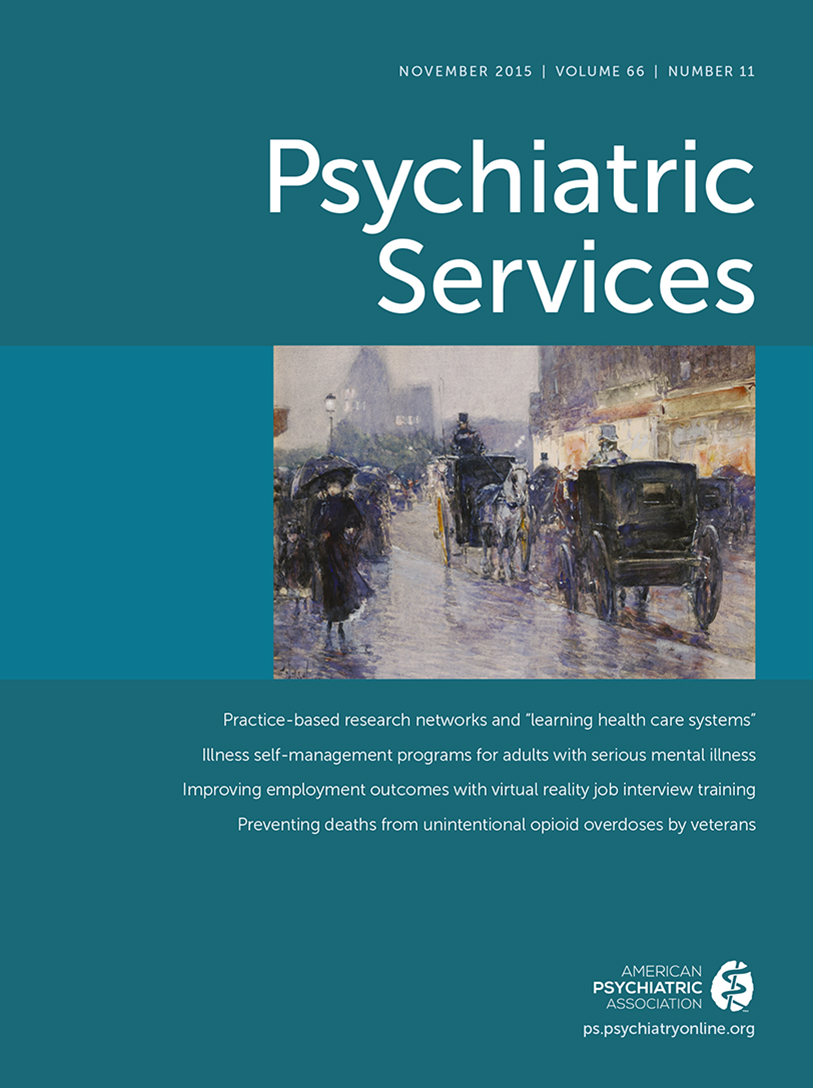The Recovery-Oriented Care Collaborative: A Practice-Based Research Network to Improve Care for People With Serious Mental Illnesses
Abstract
Phases in Building the ROCC
First Phase: Building an Infrastructure
Recruiting PBRN members.
Leadership structure.
Connecting to PBRN mentors.
Initial financial support.
Second Phase: Development of Research Question and Method
Identifying topics to study.
Identifying a study method.
Third Phase: Study Execution
Fourth Phase: Consolidation and Internal Reflection
Dissemination of findings.
Internal reflection and adjusting expectations.
Expansion and sustainability of the ROCC.
Conclusions
References
Information & Authors
Information
Published In

Cover: Horse Drawn Cabs at Evening, New York, by Childe Hassam, circa 1890. Watercolor. Daniel J. Terra Collection, 199.66. Terra Foundation for American Art. Photo credit: Terra Foundation for American Art, Chicago/Art Resource, New York City.
History
Authors
Funding Information
Metrics & Citations
Metrics
Citations
Export Citations
If you have the appropriate software installed, you can download article citation data to the citation manager of your choice. Simply select your manager software from the list below and click Download.
For more information or tips please see 'Downloading to a citation manager' in the Help menu.
View Options
View options
PDF/EPUB
View PDF/EPUBLogin options
Already a subscriber? Access your subscription through your login credentials or your institution for full access to this article.
Personal login Institutional Login Open Athens loginNot a subscriber?
PsychiatryOnline subscription options offer access to the DSM-5-TR® library, books, journals, CME, and patient resources. This all-in-one virtual library provides psychiatrists and mental health professionals with key resources for diagnosis, treatment, research, and professional development.
Need more help? PsychiatryOnline Customer Service may be reached by emailing [email protected] or by calling 800-368-5777 (in the U.S.) or 703-907-7322 (outside the U.S.).
